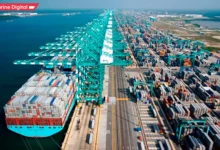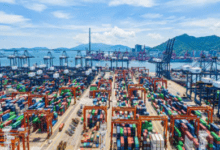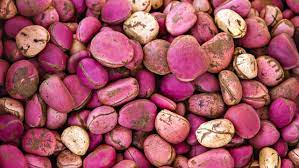Drugs Trafficking in Nigeria: It’s Effects and How to Stop it Once and For All
This post is about drugs trafficking in Nigeria: It’s effects on Nigerians and ways to to Stop the menace once and for all in our society.
We are greeted almost on a daily basis with a barrage of news of young Nigerians who are arrested while attempting to traffic hard drugs such as cocaine and heroin both within and outside the country.
👉 Relocate to Canada Today!
Live, Study and Work in Canada. No Payment is Required! Hurry Now click here to Apply >> Immigrate to CanadaThe United Nations Office on Drugs and Crime (UNODC) defines drug trafficking as the illicit global trade that deals with the cultivation, manufacture, distribution and sale of substances which are subject to drug prohibition laws.
The most commonly trafficked drugs are cocaine, heroin, morphine, cannabis sativa (Indian Hemp) and crystal methamphetamine.
The origin of Nigeria’s drugs trafficking problem can be traced to the period just after the Second World War. Nigerian soldiers who had served in Burma, India, came back with seeds of the cannabis sativa plant.
They went ahead to experiment with its cultivation and discovered that the plant does very well in some parts of Nigeria, and this led to a rise in the cultivation of the plant.
It was just a matter of time before the potentials of a high population, improving economy and a growing air transportation system would position Nigeria as a potential market where drugs trafficking can grow as well as a producer.
In subsequent years, Nigeria became a transit / trafficking point for category “A” drugs such as cocaine, heroin and other illicit substances intended for Europe, East Asia and North American markets.
The Nigeria Drug Law Enforcement Agency (NDLEA) reported that large amounts of cocaine smuggled from South America into Europe and North America passes through Nigeria.
The most widely abused and locally trafficked illicit drug in Nigeria and indeed West Africa is cannabis, in its herbal form because it is quite affordable and readily available due to the fact that it is cultivated and produced locally.
👉 Relocate to Canada Today!
Live, Study and Work in Canada. No Payment is Required! Hurry Now click here to Apply >> Immigrate to CanadaIllicit drugs are usually smuggled across the nation’s land, air and sea ports. Those smuggled by air are usually wrapped in protective film and swallowed, to be excreted at the destination of the trafficker or are tucked away in the smugglers luggage.
FACTORS THAT ENCOURAGE DRUGS TRAFFICKING IN NIGERIA
Global drugs trafficking is a multi billion dollar business. According to a March 2014 CNN world report, the Mexican drug cartels alone made between $19 and $29 billion dollars in sales per year. This huge amount means that people are willing to take massive risks to perpetuate their drug trade. In a country like Nigeria that is burdened with massive youth unemployment, corruption, poverty and a general loss of hope in the government, this financial rewards act as a huge inducement for engagement in drugs trafficking.
Another factor is the quest of Nigerian youths to make money big and fast. The drugs trade though with its attendant risks is a quick way to make money. Youths that have weak and low moral structures can easily fall victim to this evil.
EFFECTS OF DRUGS TRAFFICKING IN NIGERIA
The trafficking as well as abuse of illicit drugs has various adverse effects on both the users, traffickers and the nation at large.
1. Strained International Relations
The constant international traveller coming from Nigeria is all too familiar with the constant harassment from security agents of most western nations because of the colour of our passport.
The Nigerian green passport has come to be identified with all sorts of unscrupulous activities, majorly illicit drugs trafficking.
The careless criminal actions of a microscopic few has succeeded in painting the image of our great nation in bad light, as most Nigerian travellers are criminally profiled as drug mules.
It can be recalled that between 1993 and 1999, the United States stopped all direct flights to Nigeria due to drug trafficking.
2. Loss of Life:
The trafficking of illicit drugs poses a major risk to the life of the trafficker. There have been several cases of traffickers losing their life to this act. In August 2011, one Chilaka Ogbonna Emmanuel, a 25 year old man from Lagos, Nigeria, died on-board a Malaysia bound flight.
The plane was diverted and forced to land in India, where a post mortem was carried out on the young man. Results showed that he had ingested some narcotics, and they ruptured in his stomach, thus killing him.
This is just one of so many tragic events that take place as a result of young Nigerians attempting to smuggle drugs. A similar fate also awaits those who successfully get to their destinations but are then apprehended, as most countries in Asia such as Malaysia, Singapore and Indonesia have the death penalty reserved for convicted drug traffickers.
In April 2015, seven convicted drug traffickers from Nigeria were executed in Indonesia for drugs trafficking, despite the pleas for mercy from Nigeria and the international community.
3. Increased Crime Rate
The trafficking of illicit drugs has a significant effect on the crime rate.
Research has shown that a huge majority of violent crimes such as murder, rape and robbery, take place under the influence of these controlled substances, especially Indian Hemp.
Coupled with this, the large amount of money involved in this trade means that various drug traffickers would go to extreme lengths including resorting to violence to protect their business.
HOW TO STOP DRUGS TRAFFICKING IN NIGERIA
The war against drugs trafficking in Nigeria started in earnest with the establishment of the Dangerous Drugs Ordinance of 1935. This ordinance guided the then Board of Customs and Excise and the Nigeria Police to tackle drugs trafficking locally.
Another important period in Nigeria’s war on drugs was the Decree No. 20 of 1984 which proscribed the death penalty for all those involved in drugs trafficking.
However, due to public outcry this law was adjusted to between two years and life imprisonment, depending on the offence.
The year 1989 saw the establishment by the Federal Military Government of an independent body known as the National Drugs Law Enforcement Agency (NDLEA) to tackle the menace of drugs abuse and trafficking.
The war on drugs is an ongoing one with the NDLEA recording various degree of success. However, the following steps can be taken to tackle the menace.
- Reduction of Target Market: This involves bringing about a decline in the consumption of these substances thereby reducing demand. This will in turn cut down on the revenue of the drug traffickers, hence making the business less lucrative. This would entail counselling, rehabilitation and reintegration of drug dependent individuals into the society in order to help them stay off drugs.
- Adequate Funding and Training of Security Operatives: In as much as the government has done well by setting up the NDLEA, the agencies involved with the war on drugs should be adequately funded both by government and concerned citizens. Added to funding, they also have to be routinely trained to enable them keep up with the ever changing war. If necessary, adequate legislation should be put in place to further punish those involved in the sale of these drugs.
- Orientation and Education of the Youth: The majority of those associated with illicit drugs both with respect to abuse and trafficking are youths, this means that if the youths are kept away from drugs, the entire problem is almost solved. The Nigerian youth needs to be further oriented on the dangers involved with engaging in trafficking and abuse of drugs and not to see it as a means of livelihood. This orientation should not be left only to be done by the government or educational institutions but parents and guardians should also step up and play their role in this.
Share your views on this topic in the comments section. Don’t forget to share it to others on social networks.








that is good for help us